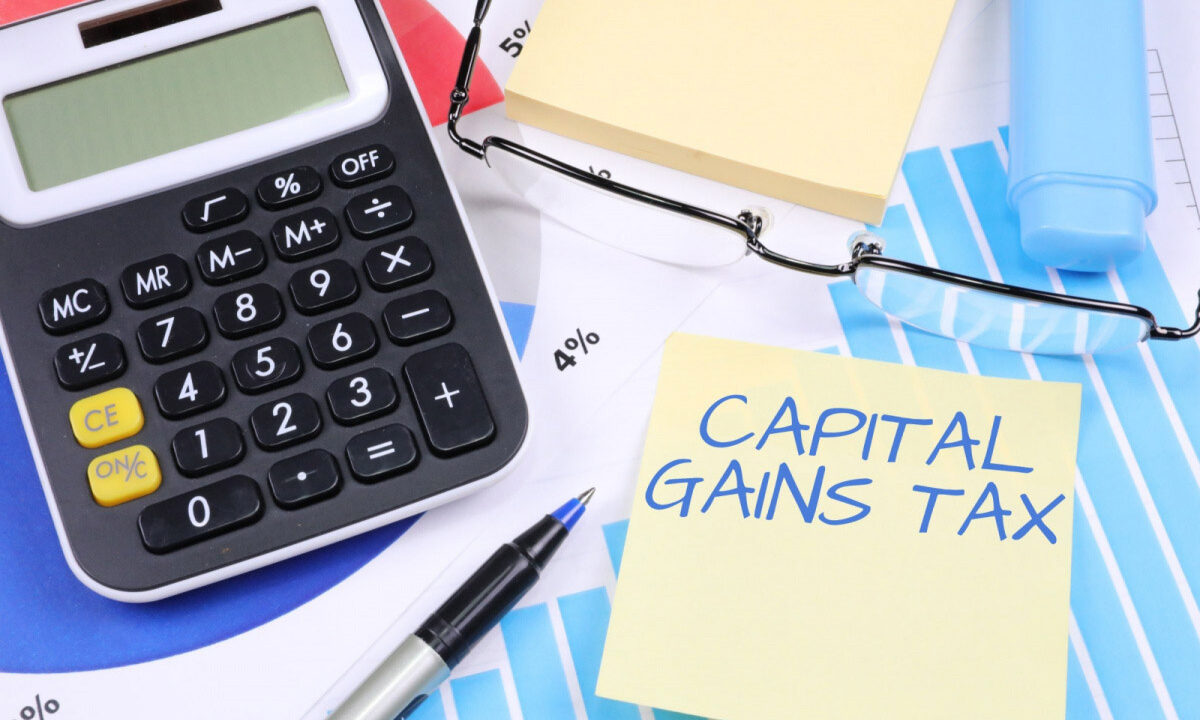

What Are Capital Gains in Real Estate? Are you looking to maximize your profits in real estate? Whether you’re a first-time seller or an experienced investor, capital gains can make or break your deal. If you’ve ever wondered how to navigate taxes, calculate profits, and avoid costly mistakes, you’re not alone.
As someone with experience in real estate investment, We are here to help you make informed financial decisions. In this article, I’ll guide you through:
- Understanding capital gains in real estate
- How to calculate your profits
- Tax implications and exemptions
By following this plan, you’ll be prepared to optimize your returns and make your next property transaction a success.
Ready to get started? Let’s go!
1. Introduction to Capital Gains
Capital gains tax is a tax on the profit you make when selling a property. The amount you pay depends on how long you owned the property and your income level. If you owned it for more than a year, the tax is usually lower. If you owned it for less than a year, you pay a higher rate, like regular income tax.
Understanding these rules helps you plan your sale and keep more of your profit. Note that capital gains tax exclusions do not apply to rental and investment properties, making it essential to navigate tax rules carefully.
Depreciation deductions can reduce taxable income during ownership but may result in a higher tax rate on recaptured depreciation when the property is sold.
See also What is ROI and How to Calculate It
2. Defining Capital Gains in Real Estate
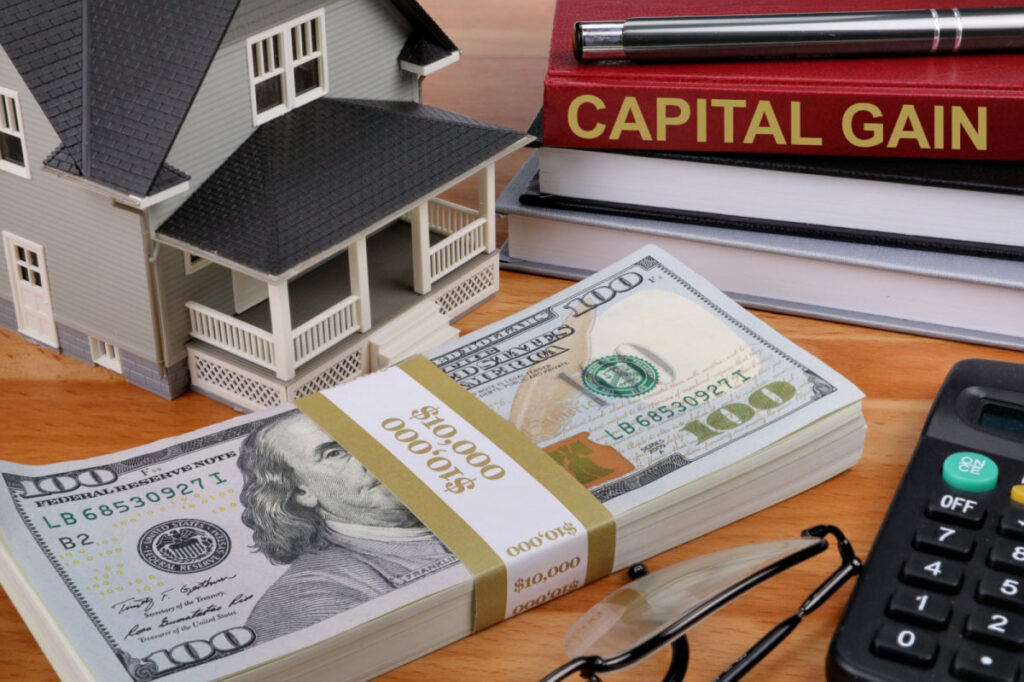
Capital gains in real estate mean the profit you make when you sell a property for more than you paid. If you own it for less than a year, you pay more tax. If you own it longer, the tax is lower. If you lived in the home, you might not pay tax on some of the profit.
Rental properties can lower your taxes through depreciation, but you may pay more tax when you sell. You find your gain by subtracting what you paid (plus improvements) from what you sold it for.
Capital Gains vs. Ordinary Income
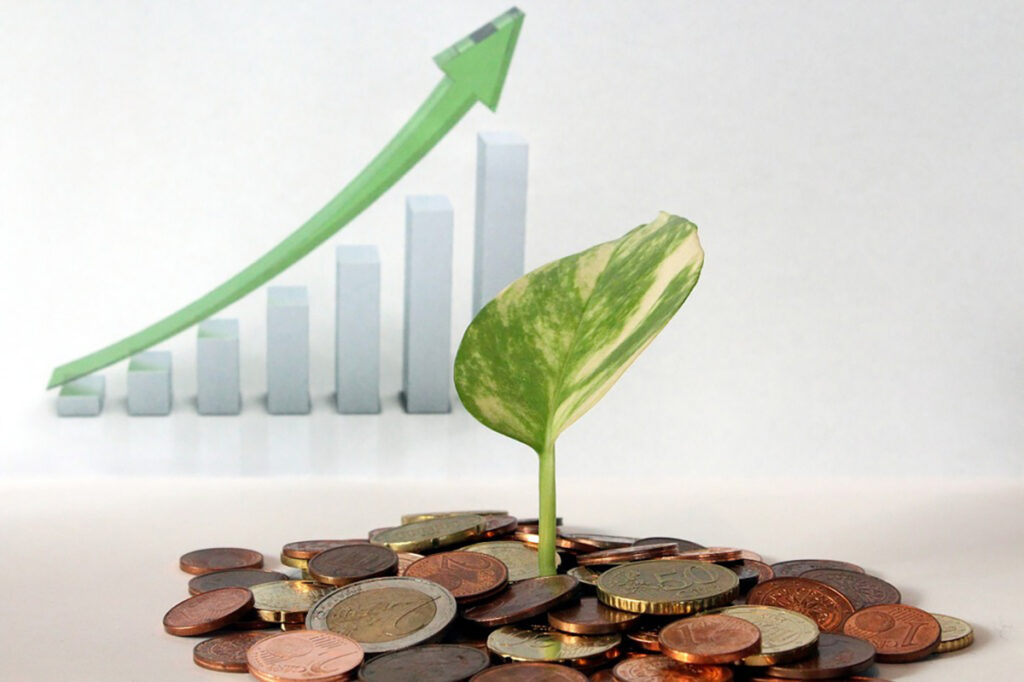
Capital gains are the profit you make when you sell a property for more than you paid. This is not the same as regular income like rent or wages. Capital gains are taxed in a different way, often at a lower rate. If the home is your main place to live, you might not have to pay tax on some of the profit.
Knowing this can help you make smarter choices with your money. Additionally, capital losses can be used to reduce your taxable income by offsetting capital gains. By strategically using offset capital gains, you can manage your tax liabilities more effectively.
Short-Term vs. Long-Term Capital Gains

Capital gains in real estate can be short-term or long-term, depending on how long you owned the property. If you sell within one year, it’s a short-term gain and usually taxed at your regular income tax rate. If you sell after one year, it’s a long-term gain and may be taxed at a lower rate.
Capital gains are calculated by subtracting your adjusted basis (purchase price plus improvements and certain costs) from the sale price. This applies to many capital assets, including real estate, stocks, and digital assets. In Dubai, there is currently no personal capital gains tax, which makes it attractive to many investors.
3. How Capital Gains Are Calculated
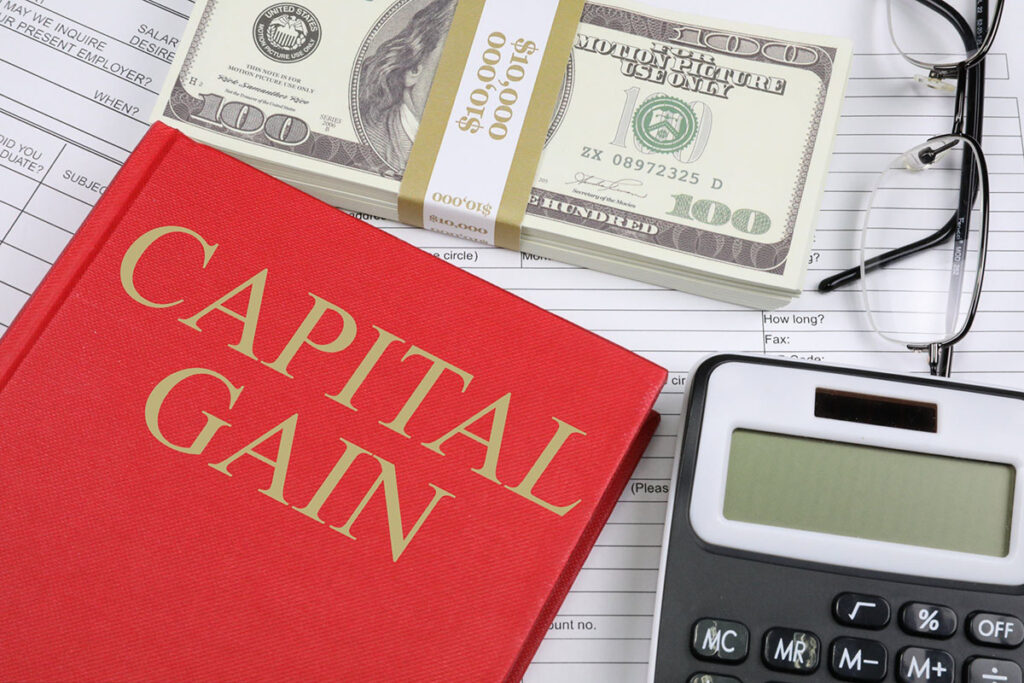
To find your profit, start with what you paid for the home. Add your buying and selling costs. Add money you spent on major repairs or improvements. Subtract that total from the price you sold the home for. The rest is your profit, called a capital gain. You may have to pay tax on that gain.
If you owned the home for more than a year, the tax rate is usually lower. If you owned it for less than a year, the rate is higher. If you lived in the home, you might not have to pay tax on some of the profit. The IRS has rules for this. You can also use strategies like tax-deferred accounts or tax-loss harvesting to reduce what you owe.
Purchase Price vs. Selling Price
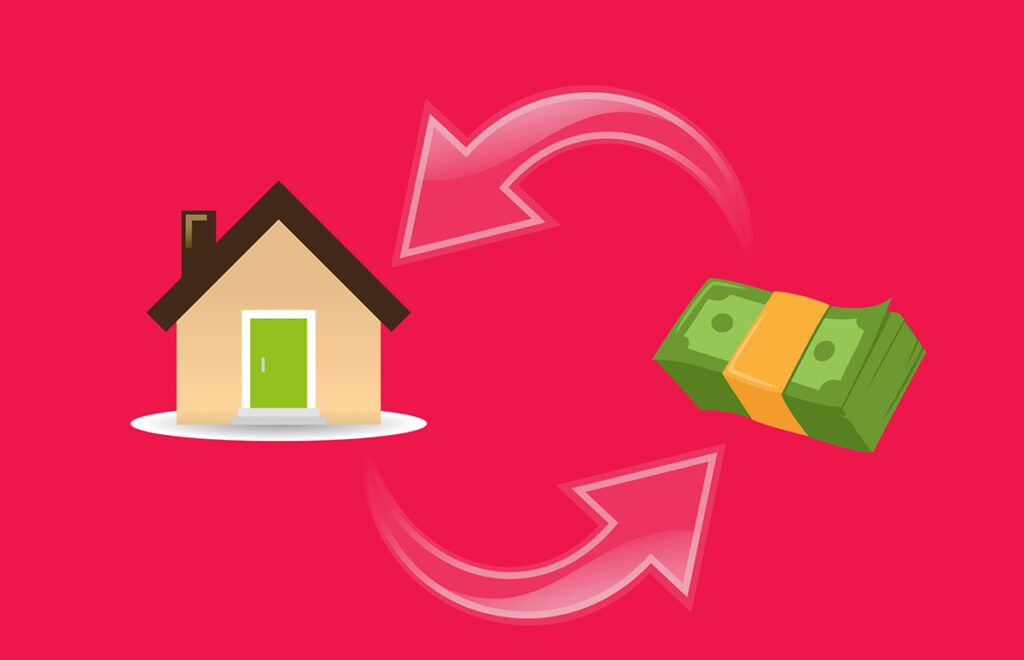
The purchase price is what you paid for the property. The selling price is what you received when you sold it. The difference between the two is your capital gain or loss. For example, if you bought a home for $250,000 and sold it for $350,000, your gain is $100,000.
Always keep records of both prices. The original purchase price is part of your cost basis. You can also add the cost of improvements. This helps you figure out your real profit and how much tax you might owe.
Adjusted Cost Basis
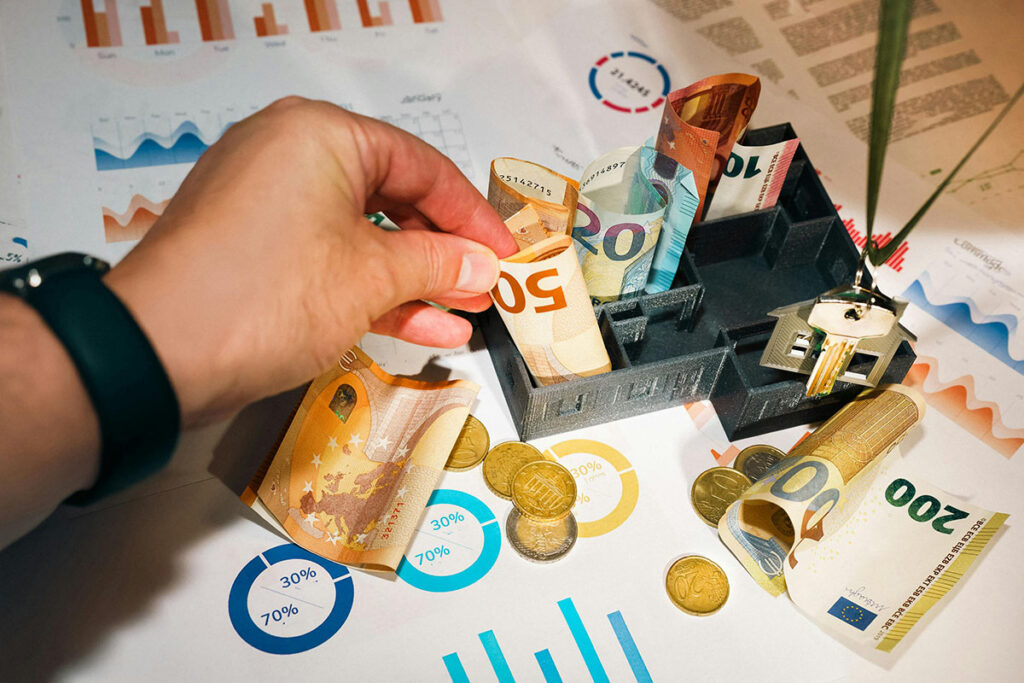
The adjusted cost basis is the original price you paid for the property, plus extra costs. These extra costs can be things like home improvements or closing fees. For example, if you bought a property for $250,000 and spent $50,000 on renovations, your adjusted cost basis is $300,000.
When you sell the property, the selling price is compared to this adjusted number to find your true profit. This helps show a clearer picture of how much you really made. Taxable profit is then calculated by subtracting the adjusted cost basis and any allowable deductions from the selling price.
Calculating Net Proceeds

To find your net proceeds, subtract the selling costs from the sale price. Selling costs include agent fees, repairs, and marketing. For example, if you sell for $350,000 and spend $30,000 on costs, your net proceeds are $320,000.
This amount is important for taxes. Capital gains tax is based on the difference between your adjusted cost basis and the net proceeds. The final sale price helps figure out your capital gains or losses.
See also The Ultimate Guide to Selling Your Property in Dubai
4. Capital Gains Tax in Real Estate
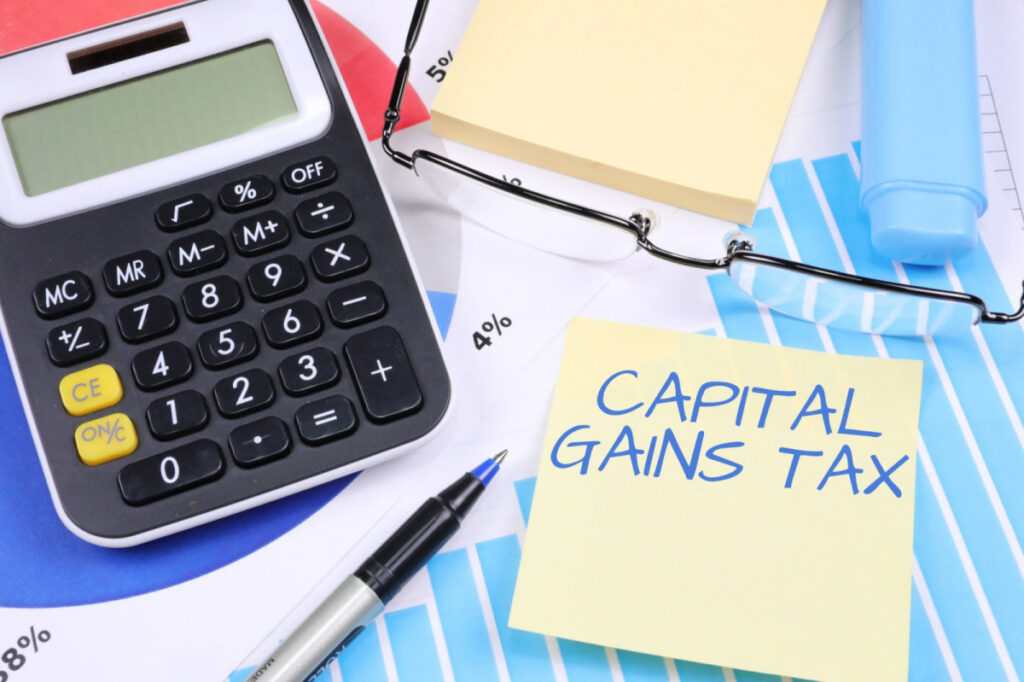
When you sell a property for more than you paid, you may owe capital gains tax on the profit. If you owned the property for over a year, you’ll likely pay a lower tax rate. Your tax rate also depends on your income and filing status, such as whether you’re single or married.
High earners may also have to pay the 3.8% Net Investment Income Tax (NIIT). Some people can defer taxes using strategies like tax-deferred accounts or 1031 exchanges. These rules can affect how much of the profit you get to keep.
Understanding the capital gains tax on real estate is crucial, as it involves factors like the length of property ownership and the taxpayer’s income status.
General Overview
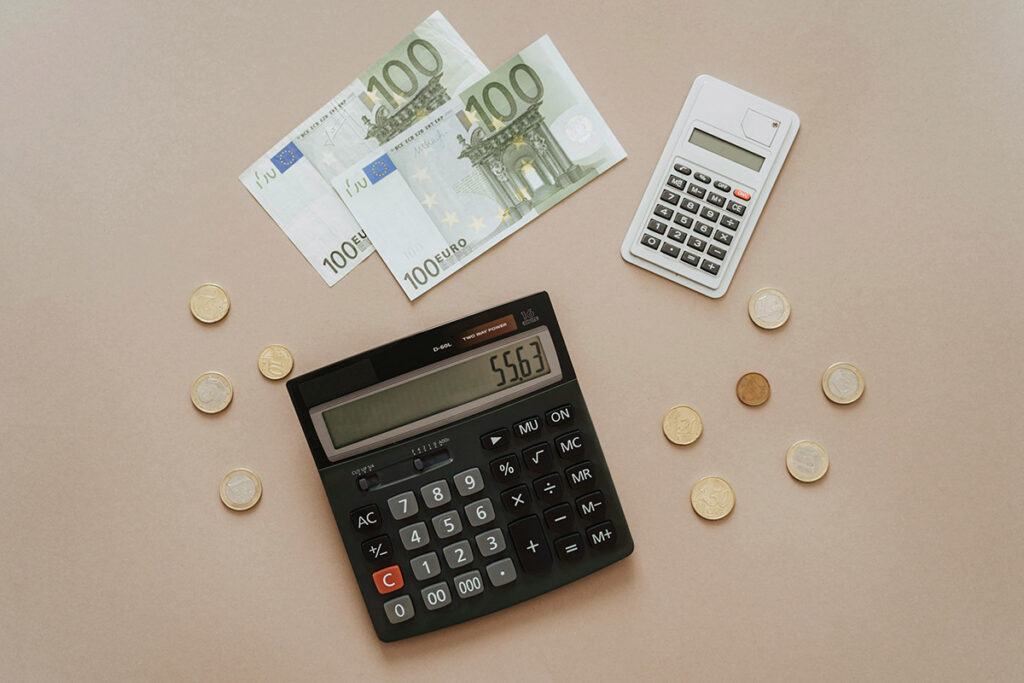
Capital gains tax is paid on the profit when you sell property. If you sell within a year, the tax is like regular income. If you sell after a year, the tax is lower. To find your taxable gain, subtract what you paid for the property (plus improvements) from the selling price.
In Dubai, there is no capital gains tax for individuals. In the U.S., you can use a Section 1031 Exchange to avoid paying taxes if you buy another similar property with the sale money. Understanding the tax implications for investment properties is crucial for effective financial planning.
The tax on real estate, including capital gains tax, can significantly impact your profit, depending on factors like the length of property ownership and your income status.
Common Exemptions
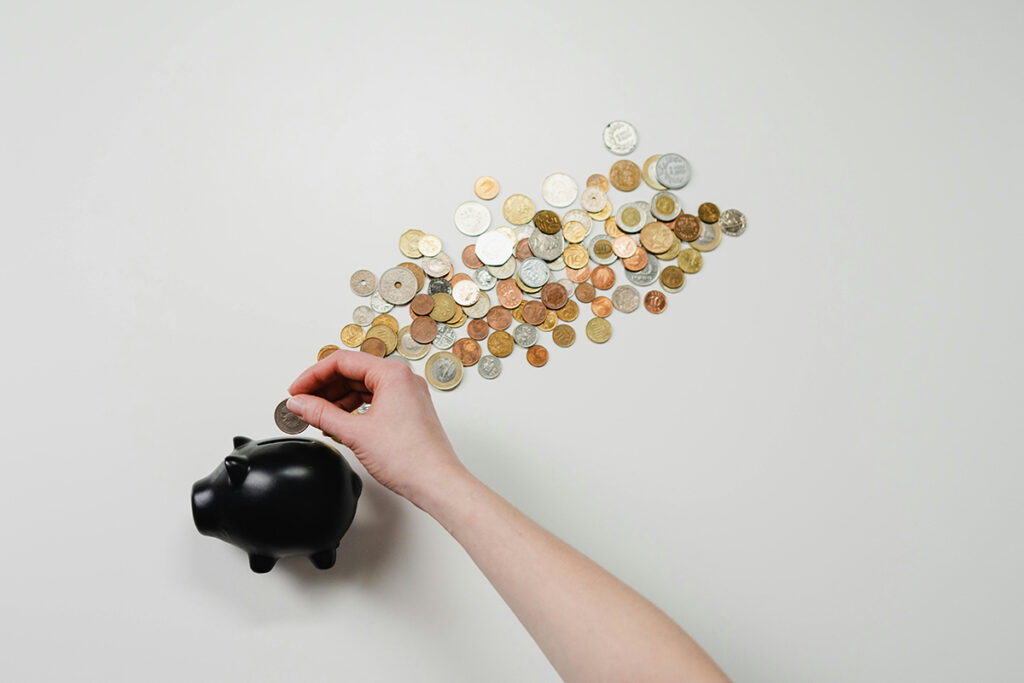
You can avoid paying capital gains tax when selling your home if you meet certain rules. If you lived in the house for 2 out of the last 5 years, you can exclude up to $250,000 in profit as a single filer ($500,000 for married couples).
For those married and filing jointly, this increased exclusion can significantly reduce the amount of tax owed on profits from selling a home. Special rules apply if you sell because of divorce or job changes.
In Dubai, there is no capital gains tax, so you don’t have to worry about paying tax on the profit from selling your property. Understanding these rules can help you save money on taxes.
Deducting Expenses to Reduce Capital Gains Tax Liability
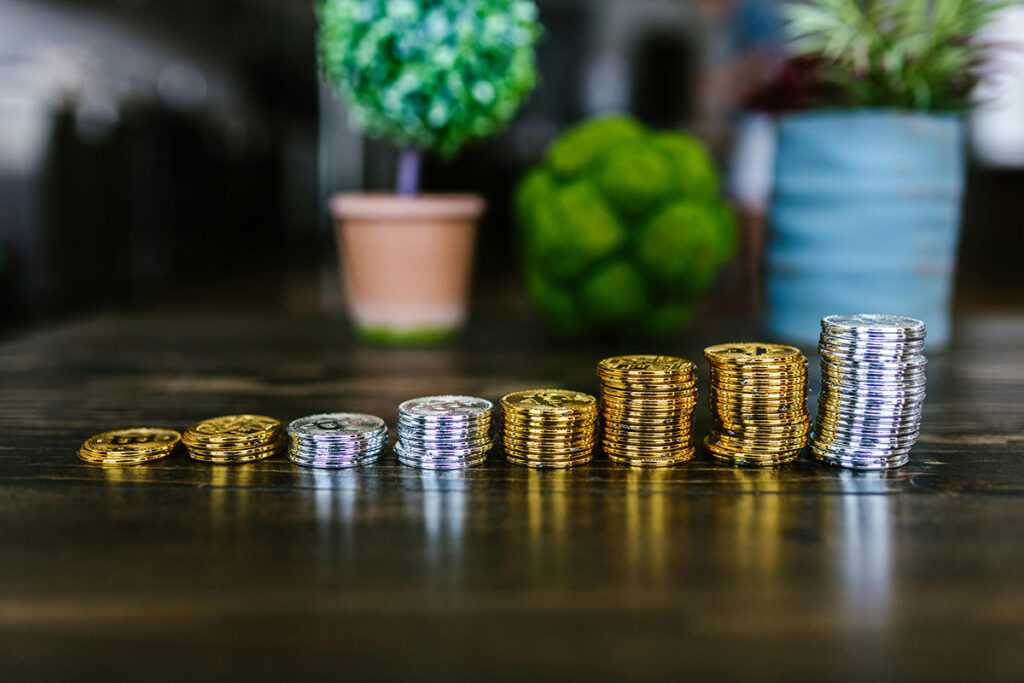
You can reduce your capital gains tax by deducting certain expenses. These include closing costs, agent fees, improvements you made to the property, like renovations, and depreciation deductions, which can reduce your taxable income.
Additionally, you can offset capital gains with capital losses to manage your tax liabilities effectively. For example, if you upgraded the kitchen, you can add these costs to your property’s price. This lowers your taxable profit and can reduce your tax bill. Keep all receipts and records to support your deductions.
5. Capital Gains in Dubai Real Estate
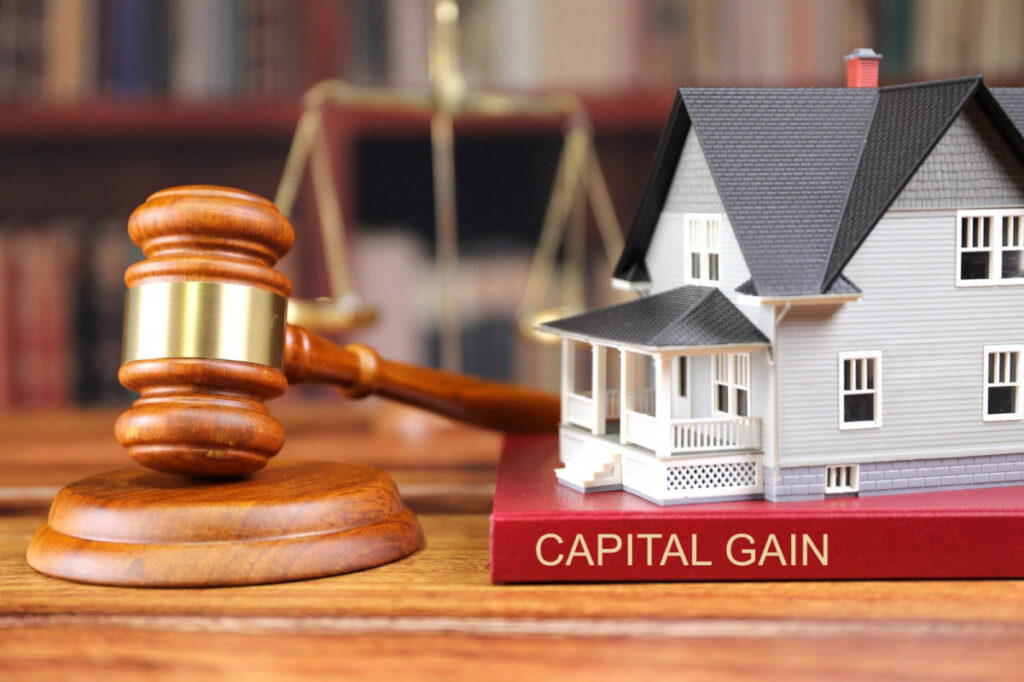
Dubai is a good place to invest in real estate because there is no capital gains tax for individuals when selling property. This means you keep all the profit from your sale. Businesses in Dubai may pay tax on big profits starting in 2023.
In some countries, high-income people pay an extra 3.8% tax on investment income, including capital gains. The tax on your profit depends on how long you own the property and your income level. Holding property for longer can lower the tax.
No Capital Gains Tax for Individual Investors

In Dubai, individual investors don’t pay capital gains tax when they sell property. This means they keep all their profit. The rule applies to both homes and business properties. Many buyers are attracted to this tax-free environment, making Dubai’s real estate market popular.
Home sales in Dubai are particularly appealing due to the lack of capital gains tax, which can significantly increase the net profit from selling a property. Investors can buy, hold, and sell without worrying about extra taxes.
However, it is still important for investors to maintain accurate tax returns to document their real estate transactions and ensure compliance with any other applicable tax regulations. Additionally, understanding and managing tax obligations related to real estate transactions can help investors optimize their financial strategies.
Other Costs to Consider
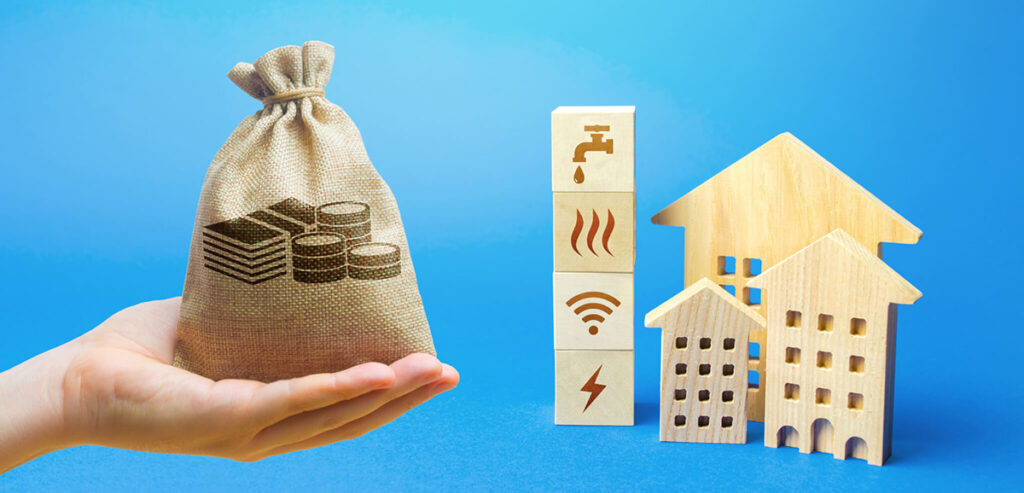
In Dubai, there is no capital gains tax, but investors should think about other costs. These include a 4% registration fee, yearly maintenance charges, property taxes, and agent fees of 2% to 5%. These costs can lower profits, so investors need to plan for them.
Understanding the tax rules is important to avoid surprises. For commercial real estate, taxes can be more complicated, so it’s a good idea to get professional help.
Corporate Sellers & International Tax Implications
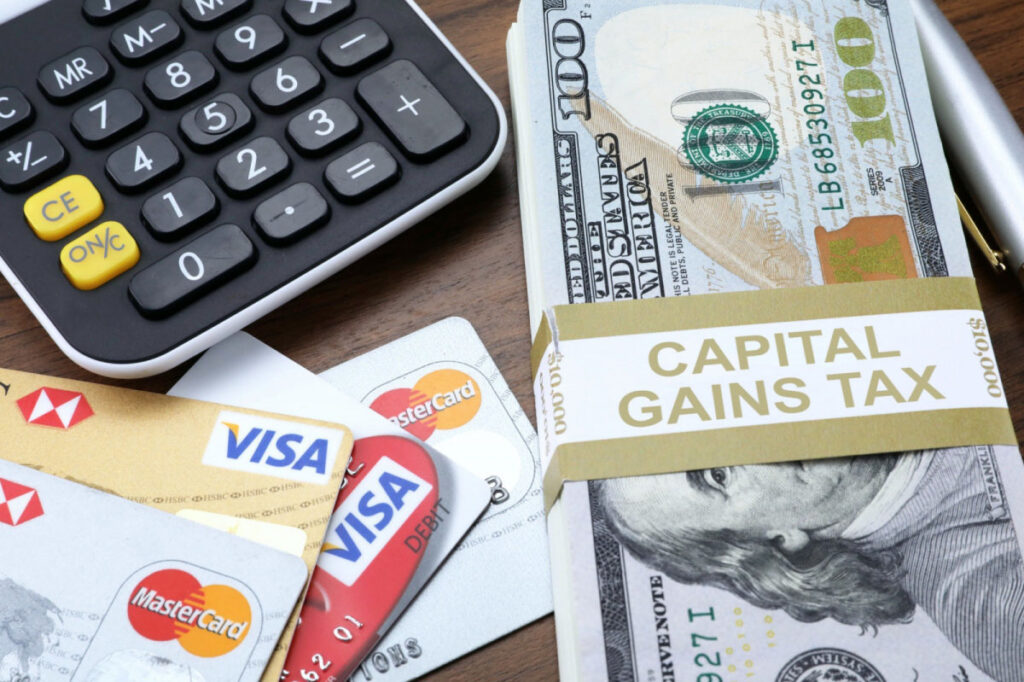
In Dubai, companies don’t pay capital gains tax, but they may face taxes in their home country. Some countries require companies to report profits from foreign sales, which can be taxed. For instance, real estate properties can generate capital gains that may be subject to tax in the investor’s home country.
Understanding the tax on real estate, especially under international tax rules, is essential. Additionally, commercial property investments can have complex tax implications that require careful planning. It’s important for corporate investors to talk to tax experts to understand these rules.
Tax treaties between Dubai and other countries can also affect how taxes are handled. Understanding how capital gains taxes work, especially for international investors, is crucial to avoid surprises.
6. How to Maximize Capital Gains on Property Sales
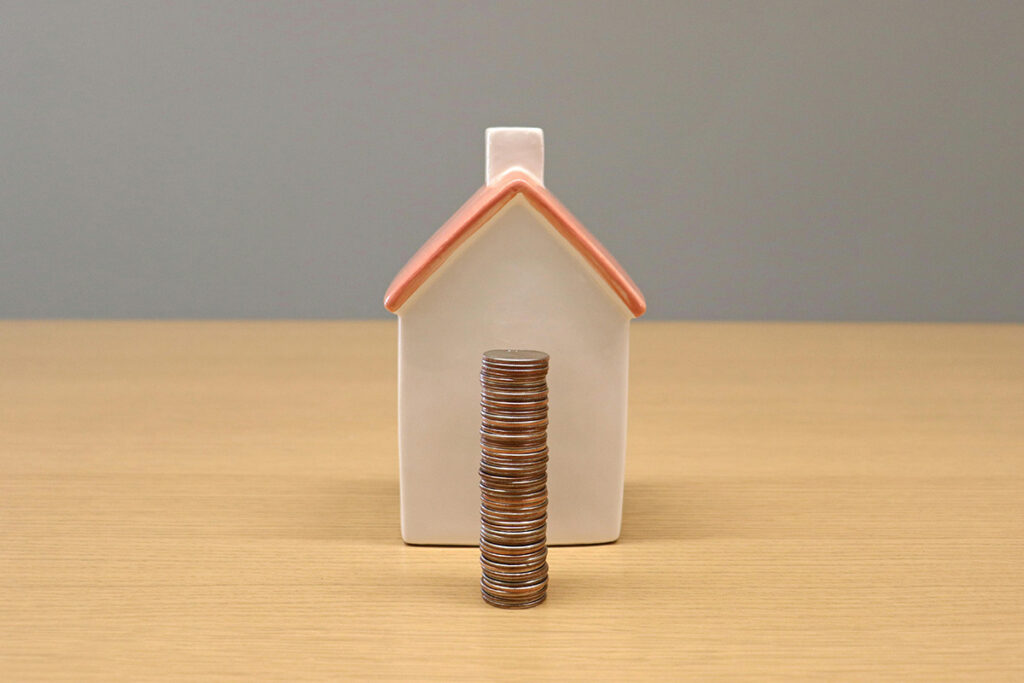
To make more money from selling property, try these tips. Fix up kitchens and bathrooms—they add value. Sell when the market is strong to get a better price. If you own the place for over a year, you’ll pay less tax on the profit.
If you sell quickly, the tax is higher and depends on your income. If you’re single or married, that also changes how much tax you pay. You can delay taxes by using a 1031 exchange to buy another property. If you lived in the home, you might not pay tax on up to $250,000 of profit—or $500,000 if married.
Spending money to improve the home can lower your future tax. A real estate agent or tax expert can help you make smart choices to reduce your capital gains tax bill. For rental property owners, converting the property into a primary residence can help avoid capital gains tax. Some tax credits can also save you money.
See also Dubai Property Market Forecast
Avoiding Capital Gains Taxes
You can’t completely avoid capital gains taxes, but there are ways to reduce them. One option is a 1031 exchange, where you swap one investment property for another and defer taxes. You can also invest in a 401(k) or IRA to delay paying taxes until you take the money out.
Additionally, the IRS offers exemptions for primary residences, which can help you avoid capital gains tax under certain conditions. If your income is lower in a certain year, selling property then can help lower your taxes. These strategies help you manage taxes better.
Strategies to Minimize Tax Liability
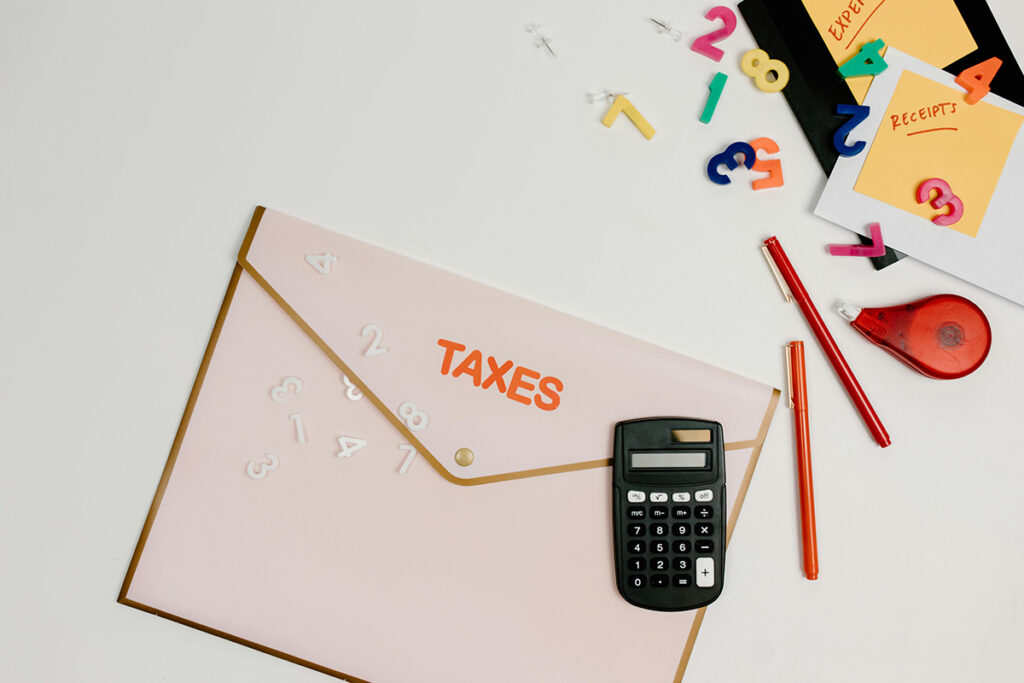
You can reduce taxes when selling property with a few strategies. One way is to use losses from other properties to lower your gains. For example, if you sell one property at a profit and another at a loss, the capital loss can reduce your taxable income.
Taxable capital gain is calculated by subtracting the property’s adjusted basis from the sale price, considering any depreciation deductions taken. Another way is to use depreciation, which allows you to deduct part of your rental property’s value over time.
This helps lower your taxes. Working with a tax advisor can help you use these strategies to save money and keep more profit.
What Are Capital Gains in Real Estate: A Recap
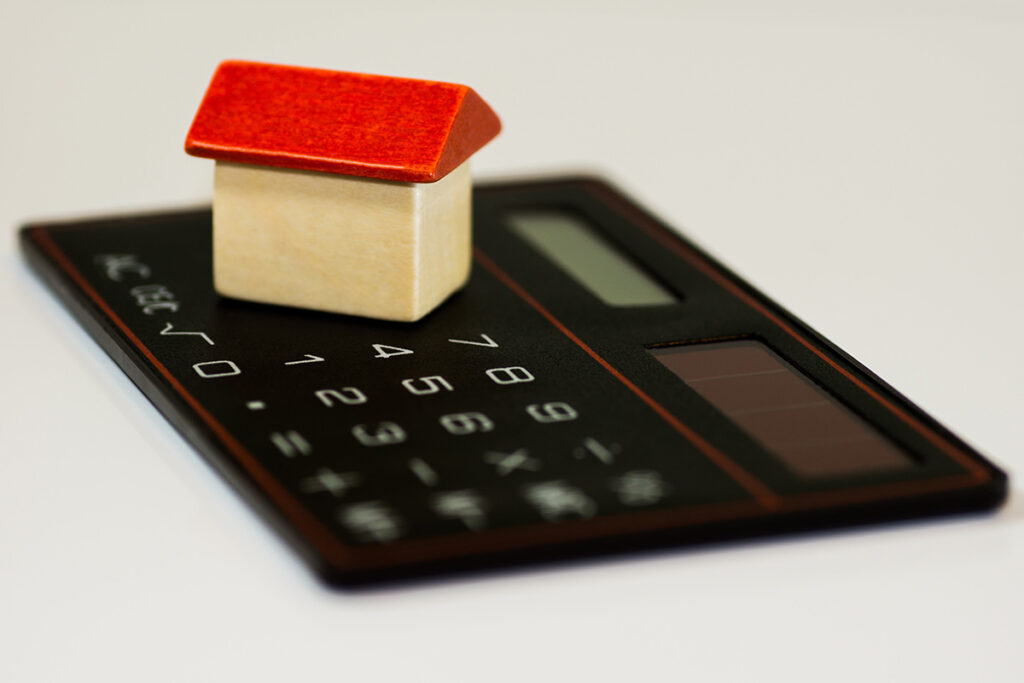
Capital gains are the profit you make when selling a property for more than you paid. In Dubai, there is no capital gains tax for individuals. You can reduce taxable profit by improving the property or holding it for more than a year.
Be aware of extra costs like registration fees and agent fees. Short-term capital gains, for properties held less than a year, are taxed at higher rates. Plan ahead, and talk to experts to make the best decisions when selling.
FAQ
What are capital gains in real estate?
Capital gains in real estate mean the profit you make when selling a property for more than you paid. How much tax you pay depends on how long you owned the property and your income. If you owned it for less than a year, you pay a higher tax. If you lived in the home, you may not have to pay tax on some of the profit. You find your profit by subtracting what you paid from what you sold it for.
What is the difference between short-term and long-term capital gains?
Capital gains can be short-term or long-term, depending on how long you own the property. If you sell within one year, it’s considered a short-term gain and is usually taxed at a higher rate. If you sell after one year, it’s a long-term gain and may be taxed at a lower rate in many countries.


